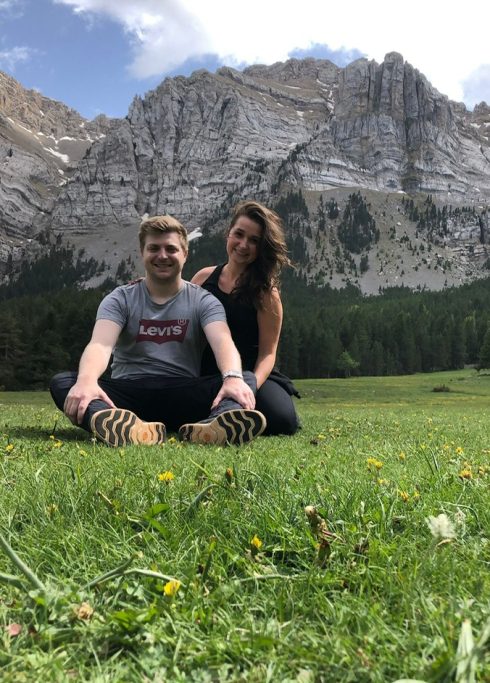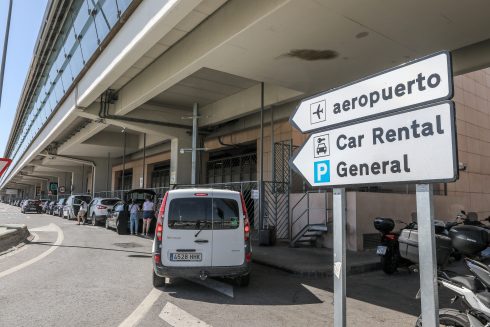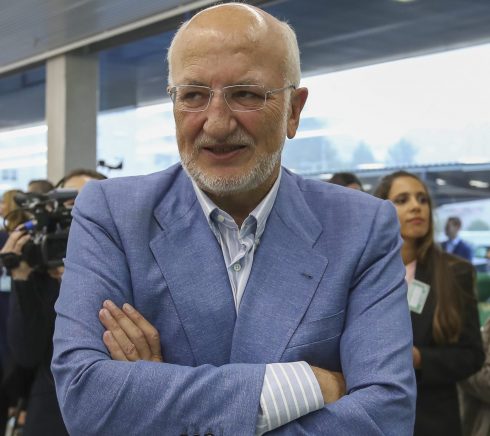A BRITISH expat has revealed how he was able to stay in Spain by signing a so-called ‘pareja de hecho’ with his Polish girlfriend.
Mark Rofe, 34, slammed post-Brexit legislation which he said made it ‘impossible’ for him to live in the same country as his partner Alex Limanowka, also 34.
The couple signed a ‘pareja de hecho’ last year, which allowed Mark to gain residency in Spain and live in Barcelona.
A ‘pareja de hecho’ is a legal status that a couple can apply for, if they can prove they have maintained a stable relationship and lived together for at least 12 months.
According to Immigration Lawyers Madrid the relationship “must be considered public and continuous, meaning that there must be documentation available to prove it and that there has been no interruption in the time you have been together during the last year.”

Mark, from Surrey, said: “I don’t think a lot of people realise just how difficult it is since Brexit to move and live in another EU country. The 90 in 180 day rule means that non-EU nationals, which obviously includes Brits, can only stay in the Schengen Area for a maximum of 90 days within any 180-day period.
“This essentially meant that I could only see Alex for half the year, and who wants to only see their partner for half the year? So we knew we had to come up with a solution.
“The EU can ban you from all EU countries for 3 or more years and issue fines if you overstay those 90 days, so overstaying was obviously something that was just not an option.”
He added: “As a temporary solution, I did some research and found out that Andorra, which was just a 3 hour bus journey from Barcelona, was not in the EU. So I would head there whenever I was close to using up my allowable days in the EU, and this meant I was still close enough for Alex to come visit me.
“Looking at long term solutions I considered a few options to obtain a visa, I looked at becoming a student, I looked at Spain’s Golden Visa, which would grant me residency if I purchased a property for €500,000 or more without a mortgage, I even looked at a type of retirement visa, but this meant I wouldn’t be able to work.

“None of these were suitable, it was impossible, so we ended up doing the pareja de hecho, a type of civil partnership, which is similar to a marriage, just without the formal ceremony. It wasn’t exactly something quick or cheap to do either, it cost thousands in legal fees and took about 6+ months for me to get my residency.”
Mark’s partner Alex, a relationship therapist said: “For a while things were uncertain, which put a strain on our relationship. Thankfully for us though, we managed to find a way to make it work.
“Putting our situation aside, it does make me think how many other hundreds or thousands of other couples may have found themselves in a similar situation because of Brexit. It seems a bit sad that for Brits, even love has more boundaries than it did before.”
Earlier this year, Spain introduced a digital nomad visa, which offers an opportunity for those who are able to work remotely, to live and work in Spain.
Mark has launched VisasForBrits.com which helps Brits to obtain the nomad visa, so they can move to Spain.
He explained: “Having been through the visa process myself, I have first hand experience of just how complicated and expensive it can be. I’ve created VisasForBrits.com because I wanted to make it easier, more accessible, and affordable for Brits to come and work and live in Spain.
“It can get a little bit complicated depending on your personal employment situation, but essentially if you earn over £27,000 a year and are able to work remotely, there’s a good chance you’ll be able to apply for Spain’s nomad visa.
“It’s still nowhere near as easy as it would have been before Brexit, but it’s at least an option for those who may fit the criteria.”








